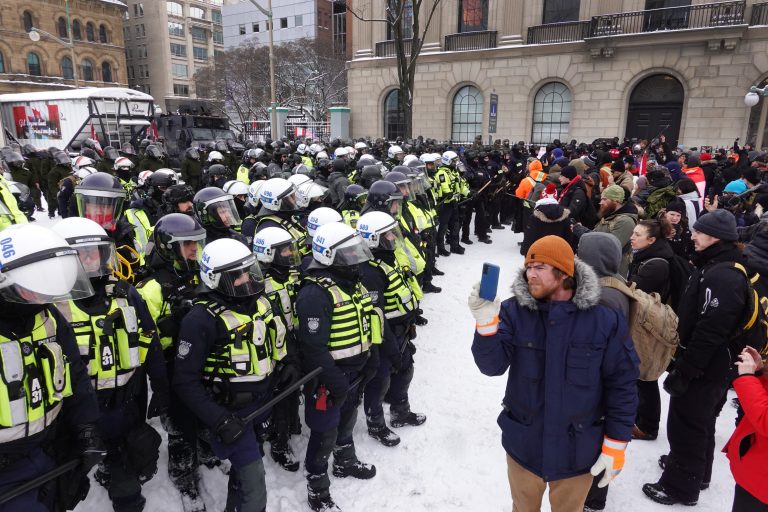Reversing course, Canadian banks have begun unfreezing accounts of individuals who supported the Freedom Convoy, according to Isabelle Jacques, an assistant deputy minister at the Canadian Department of Finance.
Jacques said on Feb. 21 that banks began to lift suspensions and have stopped the process of freezing accounts going forward.
The government attack on the protester’s finances began on Feb. 15, a day after the Trudeau government invoked the Emergencies Act, a never before used piece of legislation intended to be used during times of war not to address peaceful protesters.
The powers granted the Trudeau government allowed banks to target accounts of people who donated to crowdfunding platforms, like GiveSendGo. The actions by the Trudeau government have undermined confidence in Canada’s banking system, which may be the catalyst for the reversal.
Also, “Concerns have mounted in recent days that the financial measures outlined in the Act are an overreach of government powers and potentially infringe on Charter rights,” Canada’s heavily government subsidized CTV News reported.
Success
You are now signed up for our newsletter
Success
Check your email to complete sign up
The Canadian government’s primary targets have been crowdfunding campaigns launched to support the protests.
Freedom Convoy leader, Tamara Lich, who was arrested last week and who was recently denied bail on a charge of “counselling to commit mischief” originally launched a crowdfunding campaign on GoFundMe with a goal of raising $40,000.00 for the protests. The campaign immediately went viral and attracted in excess of $10-million before the campaign was shut down at the behest of the Canadian government.
Convoy organizers were quick to open another crowdfunding campaign on rival crowdfunding Christian platform GiveSendGo. To date the GiveSendGo campaign remains open and continues to receive donations, which have exceeded US$9.7 million. However, a disclaimer on the campaign reads, “Funds from this campaign will be disbursed in a manner permitted under Canadian law. There are current restrictions in place that might impede the immediate ability to disburse funds to this recipient.”
The Canadian government began freezing accounts following the hacking and defacing of the GiveSendGo platform, allegedly by Aubrey Cottle a self described hacker who claims to have worked for U.S. and Canadian intelligence agencies. The hack resulted in the theft of donor information which was then published to the internet.
The Canadian Broadcasting Corporation (CBC), Canada’s state funded news outlet, conducted an analysis of the donor information and supplied it to the Canadian government
It appears the Canadian government used the illegally obtained data to identify donors to the campaign.
To date, between 206 and 210 accounts have been frozen containing some $7.8 million in funds, The Star reported.







